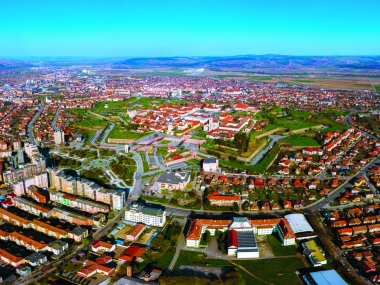Alba Iulia - leader in smart city projects amongst the medium-sized cities in Romania
Edited on
18 August 2022Treating the capital’s municipalities separately, the top smart cities are Cluj-Napoca (63), Iasi (56) and Bucharest/PMB (54). Cumulatively, the sector city halls and the General City Hall of the Capital are in first place at national level, with 115 projects. Slănic Moldova enters the top 10 Smart City directly on 7th place, with 25 projects. The Smart Mobility vertical remains in 2022 the category with the most projects (322), followed by Smart Governance (238) and Smart Living (217).

Bucharest, 9th of August 2022 – Turnkey smart solutions integrator Vegacomp Consulting publishes the sixth edition of the Smart City Scan in Romania, and the June 2022 report lists 1001 initiatives at the project stage, under implementation or already completed in 144 large, medium and small cities in the country, compared to 860 projects in 124 cities in June 2021.
In fact, the Report presents, concretely, a number of 470 Smart City projects completed in Romania so far. Cumulatively, the sector town halls and the Capital City Hall are in first place at national level, with 115 projects.
Treating the capital’s city halls separately, Cluj-Napoca becomes the Romanian city with the highest number of projects – 63 and climbs to the first position in the top 10 Smart Cities, followed by Iasi with 56 projects, Bucharest (at city hall level) with 54 projects.
Alba Iulia, which has dominated the top positions in recent years, drops this year to 4th place, with 49 projects. Sibiu and Bucharest’s Sector 4 follow with 35 projects each. Oradea and Timisoara share sixth place, each with 26 projects, followed by Arad and Slănic Moldova with 25.
Next are Bistrita (20), Hârșova (19), and 10th place is occupied by Brașov (18), tied with Botoșani (18).
“In the 2022 Report, we note that the current stage of the Smart City concept in Romania has gone beyond the pilot projects phase, going backwards and forwards at the same time, without advancing to consistent Smart City projects due, first of all, to the lack of competent staff in the local and central public administration. Without people in town halls, specially delegated for Smart City projects and with City Managers suffocated by administrative tasks, we have all kinds of funds available for nothing. This is why we stress, once again, the need to allocate resources for project management and IT&C (IT and connectivity)”, says Cornel Barbuț, CEO of Vegacomp Consulting.
At the level of medium-sized cities, the ranking is led by Alba Iulia (49), Sibiu (35) and Oradea (26), while the podium of small towns is occupied by Hârșova (19), Avrig (14) and Aleșd (10).
“The Smart City projects identified in recent years in Romania are attempts and trials in the approach towards understanding the concept and phenomenon of Smart City.
As an image of international efforts related to technology and modernization of cities, we see that the 6 verticals defined as Smart City pillars are challenged with other projects to design “spaces” in our cities according to people, their professions and passions. There is a need for new spaces in our communities: spaces for dialogue, data spaces, spaces for civic initiatives, for the arts, for spirituality, for various sports and recreation, etc. Concepts such as Art City or Spiritual City are making their presence felt alongside Mega Cities, and in this report we highlight the progress or regression in the digitization of our cities,” adds Barbuț.
The Smart City projects identified remain classified under the same six Smart City verticals – Smart Economy, Smart Mobility, Smart Environment, Smart People, Smart Living and Smart Governance, which are in line with EU reporting.
As in last year’s edition, the Smart Mobility vertical maintains its leading position and, moreover, increases significantly compared to previous years: in 2020 it included 188 projects, in 2021 no less than 260 projects, reaching in 2022 322 projects mainly focused on the modernization of transport and traffic management.
Smart Governance follows with 238 projects, up from 226 last year, and maintains its second position in the ranking. Smart Living is in third place with 217 projects, up 43 initiatives from 2021. Smart Economy maintains its fourth place, with 130 projects and a slight lead of 31 initiatives. The last two positions are Smart Environment, with 59 projects, down from 64 in 2021, and Smart People, with only 35 initiatives, down two projects from last year.
The full report is available, free of charge, here: radiografia-smart-city_2022_english_final, for any user or company interested in the evolution of the Smart City market in Romania.
Source: Vegacomp Consulting.
 Submitted by Liviu Stanciu on
Submitted by Liviu Stanciu on
